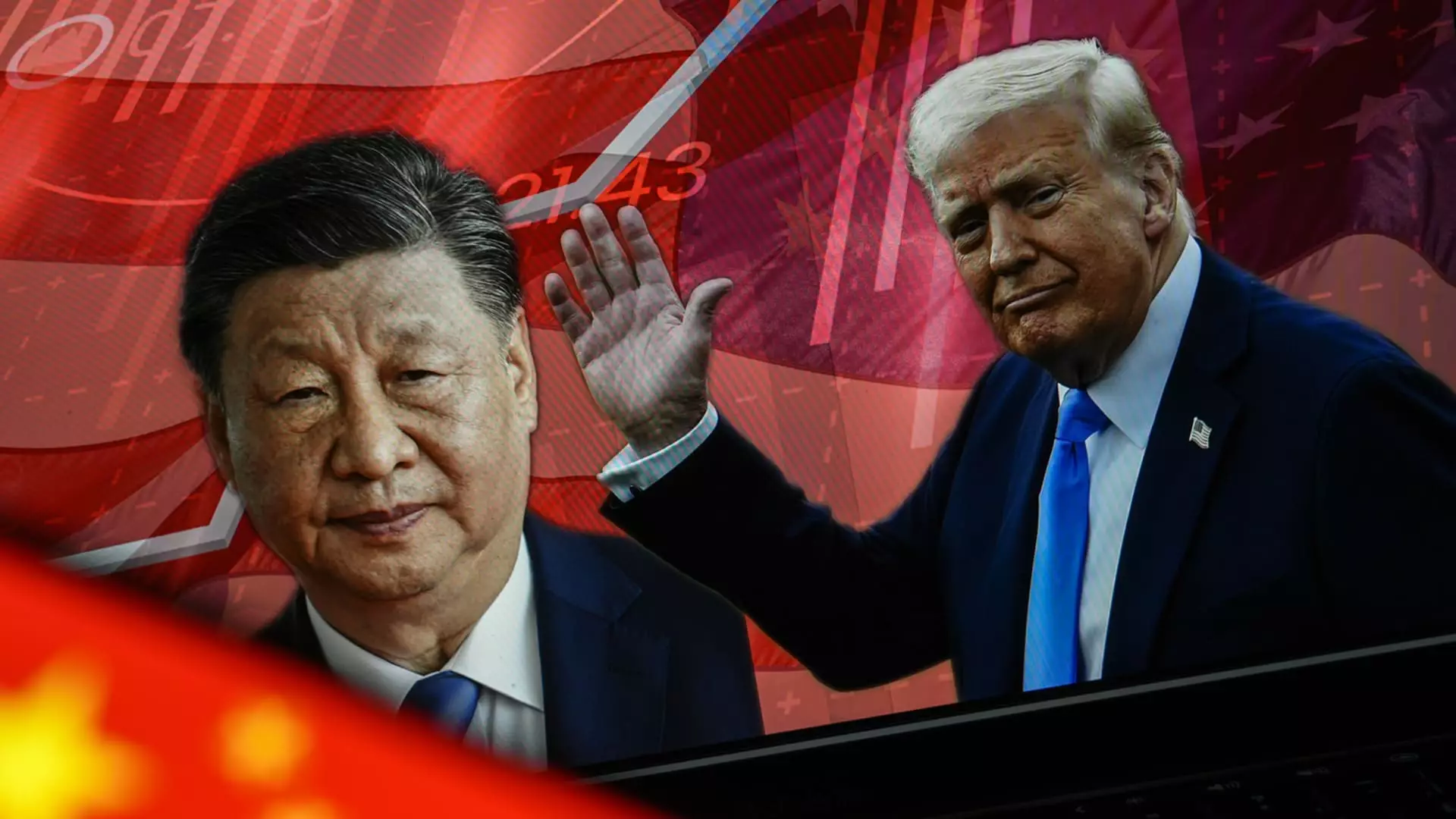China’s recent announcement to cease retaliation against U.S. tariffs marks a pivotal moment in the ongoing trade war—one that signifies both frustration and a strategic recalibration. The noise surrounding tariffs has reached a fever pitch, with U.S. levies skyrocketing by as much as 245%. Yet, China, far from being incapacitated, has opted to redirect its energies towards more nuanced, non-tariff measures aimed at crippling the U.S. economy from unexpected angles. This calculated pivot is not only a demonstration of China’s resilience but also a reflection of its strategic depth in international economic warfare.
While the Trump administration is fixated on an aggressive tariff regime, China’s current strategy indicates that it can inflict significant pain through tactics that circumvent typical trade barriers. Imposing import duties of up to 125% on U.S. goods was merely the opening act; the forthcoming steps could shape a long-term landscape that consistently disadvantages U.S. corporations. This newfound emphasis on targeting the services sector, including legal, consulting, and financial firms, underscores a sophisticated understanding of where the U.S. fundamentally excels—and where it is most vulnerable.
Decoupling: A Dangerous Dance
The current trajectory not only reveals an increasing hostility in U.S.-China relations but also paves the way for an alarming economic decoupling. Analysts like Wendy Cutler have pointed out that the decoupling is in full swing, with a noticeable fracture occurring in both the goods and services sectors. This economic schism is not merely about tariffs—it symbolizes a broader ideological conflict, where long-standing partnerships could be at risk, making way for isolationist business practices.
China’s signaling of intent to employ non-tariff measures serves to cast its net wider, trying to ensnare U.S. firms that have prospered in their markets. Legal and consulting firms, predominantly American, stand to face repercussions as Beijing questions the “monopoly benefits” accrued from intellectual property rights. Such framing not only fosters nationalistic sentiments but also compels these firms to reassess their commitments to the Chinese market, thereby strategically reorienting the balance of power.
Collateral Damage: The Price of Hostility
Yet, while China’s actions represent shrewd diplomacy, they also risk creating collateral damage that can rebound into its borders. The inability to seamlessly collaborate with American companies like Boeing, especially amid its longer-term quality control issues, unveils the potential pitfalls of this aggressive stance. While bringing U.S. aviation firms to their knees may seem appealing, the immediate impact on the Chinese aviation sector could be equally debilitating, posing risks to domestic growth and innovation.
Moreover, as Chinese authorities issue warnings against U.S. firms like DuPont and Google, they are characterizing American technology and businesses as adversarial elements—a narrative that may unify domestic opinion but could alienate valuable partners in the long run. The perpetual cycling of this antagonism leads to an epoch where mutual economic benefits are forsaken for short-lived rhetorical wins. Dangerous precedents are set when economic considerations are subjugated to nationalistic fervor.
The Reputational Stakes: More Than Just Economics
What we are witnessing is not merely a financial squabble; it transcends to reputational stakes—impacting avenues like education and technology exchange. The potential drop in Chinese students pursuing studies in the U.S., coupled with fading business partnerships, poses a significant threat to the very foundational fabric of global interconnectedness. Analysts predict these developments may lead to a systemic divergence that engenders more than economic loss. They threaten to sever the bonds that have traditionally facilitated knowledge sharing, a cornerstone of innovation.
China’s calculated moves—warning citizens against travel to the U.S. and curtailing the importation of films—carry a weight that far exceeds mere statistics. They resonate politically and psychologically; they aim to provoke an underlying fear of American influence while retrenching the public’s sense of national pride. This compounded effect could lead to a long-term degradation of cooperative spirit, with relationship-building the ultimate casualty.
In sum, the trade conflict evolving into a war of attrition reveals to both sides the critical need for newer paradigms of negotiation grounded in equity and cooperation. As economies entangle further, it beckons for a clarion call towards dialogue that elevates diplomacy over avarice. But the road ahead will demand nimble minds and an unwavering commitment to open, balanced engagement—qualities that currently seem in short supply on both sides of the Pacific.


Leave a Reply